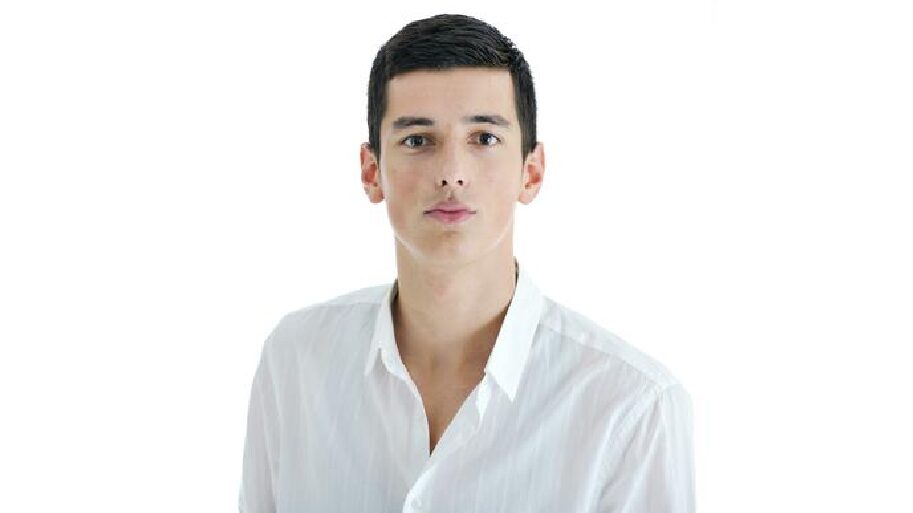This guest post is Rory Torres, a young man on the autism spectrum who was accepted into San Diego State University. Rory is applying for the Spring 2025 Making a Difference Autism Scholarship via the nonprofit KFM Making a Difference started by me, Kerry Magro. I was nonverbal till 2.5 and diagnosed with autism at 4 and you can read more about my organization here.
Autistics on Autism the Next Chapter: Stories You Need to Hear About What Helped Them While Growing Up and Pursuing Their Dreams will be released on Amazon on 3/25/25 and looks at the lives over 75 Autistic adults. 100% of the proceeds from this book will go back to supporting our nonprofits many initiatives, like this scholarship program. Check out the book here.
I always thought my autism was the reason why I consider myself to be different from everyone else. Due to my autism diagnosis, I had to face challenges that people who weren’t on the spectrum didn’t have to face. Recently, I started wondering if the social challenges that I had to face as a result of autism caused me to become more empathetic and understanding of people who are misunderstood. The diagnosis allowed me to view the world in a different perspective from others. Due to my autism, I dedicated my entire life to understanding different kinds of social cues. Throughout my entire life, students at my school knew me as the shy, quiet guy. I started talking more as years passed, but my need to be silent caused me to not advocate for myself. Due to my autism, I was afraid to talk to others. This fear was mostly common in kindergarten. Whenever I tried saying something, I would immediately take it back after saying the first word of a sentence. I never viewed silence as a disadvantage. Other than being afraid of talking to others, another reason why I stopped talking to others is that I didn’t know if I would get in trouble for talking or not. In my elementary school, the students would talk a lot and not do their assignments. As a result, my teachers would yell at the entire class. I tried to stay quiet to make sure that I don’t hurt the teachers’ feelings and that they don’t yell. Even though I knew when it was okay to talk, I was still quiet because it became part of my routine. Autism played a role in this because it causes me to be afraid of change. That’s why I have trouble changing my routine. If I change my routine, then, people would create new expectations about myself. If I talk more than usual, people that I usually see at school would act surprised. I didn’t want to lose the expectations I already had because I always wanted to keep a low profile. I always didn’t like to be the center of attention.
My mother and father did everything they could to help me improve my social skills. Throughout elementary school, I had to take two more classes than the others students in my grade because many teachers thought my autism was a barrier that prevented me from succeeding in school. One of the extra classes that I took was a support class that gave me assistance in the course topics that my English and math classes were going over. The class mainly focused on improving my reading comprehension because my autism caused me to have trouble with reading and writing. I was able to improve my reading and writing skills during my sophomore year of high school. I asked my English teacher for help and I used his feedback to edit my essays. The other class was mainly focused on improving my social skills rather than reading and writing. In the speech class that I took in elementary school, I would practice talking to others and I would learn new vocabulary words. The goal was to talk in a way that my peers would understand. When I was younger, I never understood why I had to take these two classes. My parents didn’t tell me that I had autism until I was in the sixth grade. I only knew that I was shy and that I didn’t like initiating conversations. I was never socially awkward when helping others because students were the ones that asked me questions. The main goal that I set for myself was to advocate for myself and ask more questions.
During high school, I felt misunderstood. I always thought that people were making fun of me because of the way that I dressed and the vibe that I gave off. The problem was that people were making stereotypes about me based on their ideas of who I am. Even though I don’t regret having autism, I just wish that could’ve stood up for myself. I needed to improve my social skills to defend my own interests. If someone doesn’t like who I am, I need to tell them to stop making fun of me. The problem was that I didn’t know how to say what was in my mind. My autism caused me to have trouble talking without having to think about it for a long time. I couldn’t say anything without pausing to think about what to say next. In speech and debate class, I always needed a script to gain a better understanding of how to talk about certain pieces of information. The speech and debate class taught me that if I don’t use a script to recite information, I may be able to improve my confidence and my nonverbal cues. I would focus on how I deliver the speech rather than just reading note cards. This class helped me improve my social skills because when I have a face-to-face conversation with someone, I must convey emotion and not make the situation awkward by thinking about how I deliver the information.
Even though I struggled with reading comprehension, I don’t regret having autism. To me, autism is a learning opportunity that teaches people to accept others for their differences. Because I was born on the spectrum, I learned to increase my work ethic and to get out of my comfort zone to succeed in high school and my career. I may not have been the best communicator, but I’m willing to talk with others to learn how to improve my social skills. I consider my autism to be a blessing and a curse. I don’t care if my autism is a barrier that prevents me from becoming successful. If I can overcome this weakness, I get to prove to others that I’m capable of succeeding.
Kerry Magro, a professional speaker and best-selling author who is also on the autism spectrum started the nonprofit KFM Making a Difference in 2011 to help students with autism receive scholarship aid to pursue a post-secondary education. Help us continue to help students with autism go to college by making a tax-deductible donation to our nonprofit here.
Also, consider having Kerry, one of the only professionally accredited speakers on the spectrum in the country, speak at your next event by sending him an inquiry here. If you have a referral for someone who many want him to speak please reach out as well! Kerry speaks with schools, businesses, government agencies, colleges, nonprofit organizations, parent groups and other special events on topics ranging from employment, how to succeed in college with a learning disability, internal communication, living with autism, bullying prevention, social media best practices, innovation, presentation best practices and much more!














